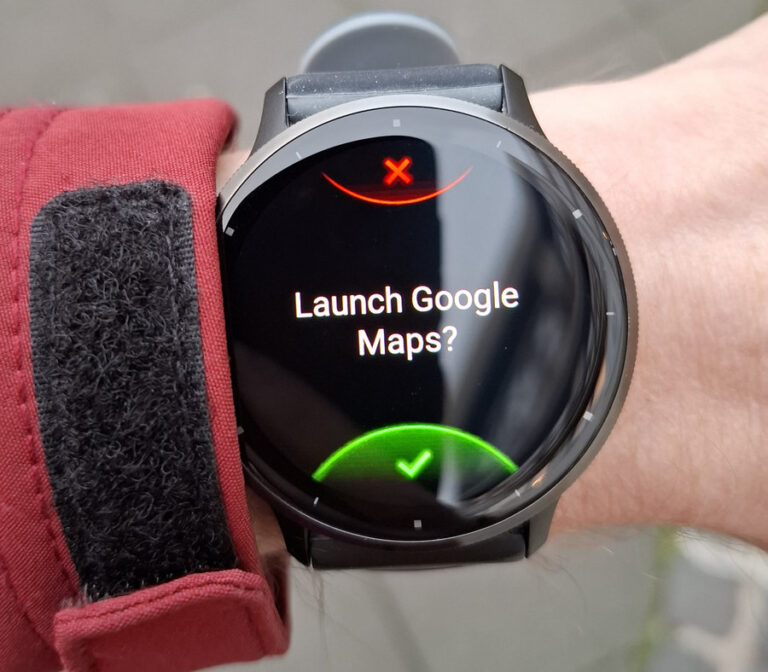Smartwatch Battery Life: What’s Truly ‘Good Enough’?
Battery life of a smartwatch is a known issue. The watches become better over time, but powerful watches like WearOS based, still struggle from a short battery life.
But do they? Do you really need a week of battery life? Obviously, more is better. Indefinite battery life would be an ideal option. But, being realistic – how long is good enough?
- One day (24 hours)?
- Two days?
- A week?
I suggest starting with another question – “why?”. What dictates an acceptable and not-so-acceptable battery life? The use cases. Moreover, not just use cases, but your use cases.
Because this is my site, I will go through my use cases here and try to answer what acceptable battery life means for me.
But you charge your smartphone every night anyway
Heard this argument rather often. Yes, I change my smartphone every night and sometimes even more often (when I use it super aggressively). But when my smartphone is charging, it keeps 99% of its functionality – I can use it, I can make calls, take photos, and so on. Moreover, I can charge it on the go using a small power bank – I did several times when I was hiking (you know, GPS navigation + gigabytes of photos and videos drain the battery very fast).
A smartwatch, on the other hand, keeps 5% of its functionality when it is checking. And you cannot change it on the go while tracking a hike. This is a huge difference!
The second one is that a smartphone is expected to be away (for example, on a charger) during the night, and a smartwatch is expected to be on a wrist to collect health data (like HRV and RHR) and to wake you up in the morning.
Support a regular-day scenario
During a regular day, I exercise, use some smart features, and track my sleep. In the morning, I must be sure that the watch will drive me through the day, even if it will be longer than usual.
And I do need my watch on me all the time – to check the time, to receive notifications, and to use timers. The time I do not need my watch is when I take a shower.
Something like: charge it during a shower in the evening; wear it in a bed; start the next day with the battery level, which, if needed, will keep the watch functioning till the morning after.
To cover this use case, my watch must support around 35 – 40 hours of mixed usage mode (day, exercise, sleep mode) and must charge for these 40 hours within 15 minutes. Both are important! If the watch requires an hour of charging daily – the use case is not covered.
Actually, my Galaxy Watch 4 required even more than an hour charge per day – and this destroyed this use case for me.
If I have to charge my watch longer than 15 minutes, like 45 minutes or so – this should not be a daily activity!
Hiking or Running a marathon or something like that
Obviously, my watch must be able to track the activities I do. For me, this means hiking. Up to 8 hours (this is my longest hike so far, you can read about it in “A Long Hike With My Galaxy Watch” post). Probably up to 9 hours, to be on the safe side.
But, again, this is an absolute must, but not enough. I need my watch to wake me up on the big hike day and drive me until the evening. And then, it must not require 2 hours of charging this evening – I still need it for usual things.
Something like: a night + morning + 9 hours of hike (GPS tracking and navigation) + evening + up to 1 hour charge till full.
Weekends trips
Not so often for me personally. But I want to be able to spend 2 – 3 days outside my home, without needing to think about chargers and charging. Charging a phone is not an issue – USB-C and some time are always available. And if driving is involved – navigation + charging is a good and easy way to keep my phone charged. But I do not want to be forced to take care of my watch on top during these short trios.
Summary
Above, I explained how I judge if the battery of my smartwatch is “good enough”.
The only thing that I did not mention above is that “regular usage” for me personally includes always on display. If I have to turn it off to meet battery needs, this is not good.
As you can easily guess, the Galaxy Watch 4 I had did not meet the described criteria, whereas the Garmin Venu 3 does.
Galaxy Watch 7 Ultra, probably meets them as well due to bigger battery and faster charging (remember – it is not just about battery life, but about a battery life + charging time combo!). But this watch is too big for my wrist. And, frankly, it was too expensive for me.
What are your ‘good enough’ battery life criteria? Share in comments!






